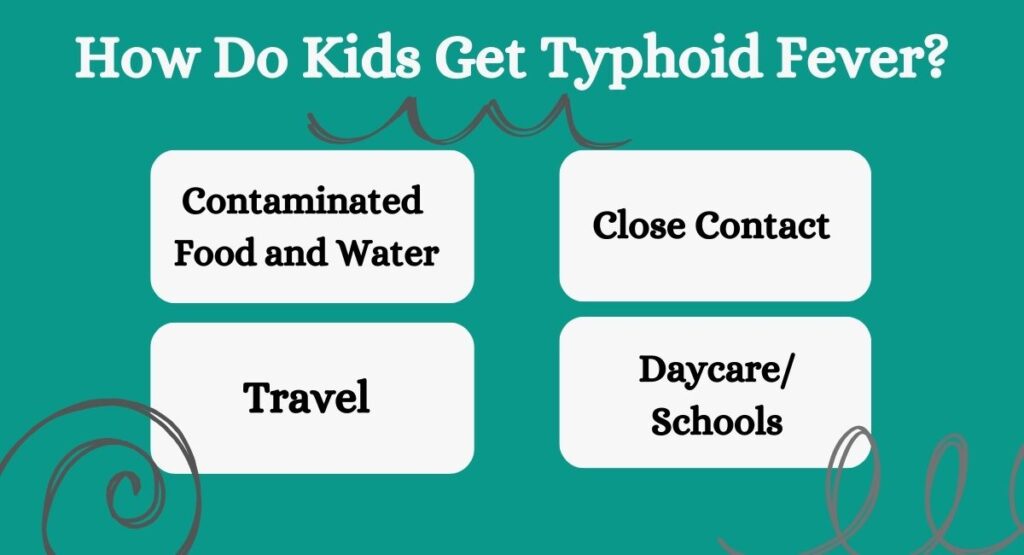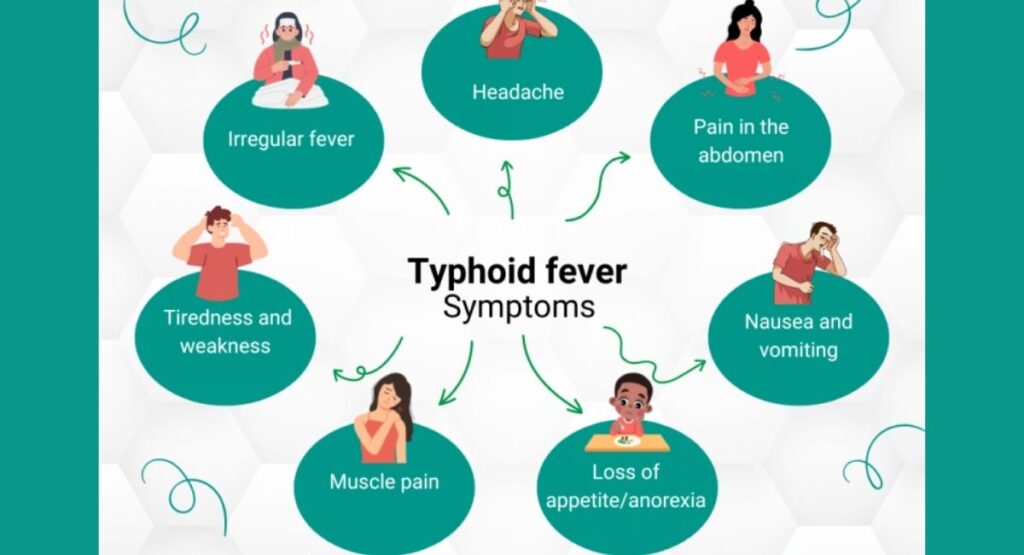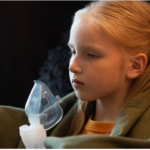What Is Typhoid Fever?
Typhoid fever is a bacterial infection caused by a bacterium called Salmonella Typhi. It is a potentially serious illness that primarily affects the digestive system but can also spread to other parts of the body if left untreated. Typhoid fever is most commonly contracted by consuming contaminated food or water that contains the Salmonella Typhi bacteria. In this blog we have shared typhoid fever precautions in children.
How Do Kids Get Typhoid Fever?
Children can get typhoid fever by:
Contaminated Food and Water: This occurs when they consume food or drinks prepared in unsanitary conditions or contaminated with Salmonella Typhi bacteria, whether at home, in restaurants, or from street vendors.
Close Contact: If children interact closely with infected individuals who have poor hygiene, like improper handwashing after using the toilet, they can contract the disease by touching contaminated surfaces and putting their hands in their mouth.
Travel: Traveling to areas where typhoid is common without precautions like drinking purified water and eating safely cooked foods puts children at risk.
Daycare/Schools: In daycare or school settings, the disease can spread if an infected child attends without proper treatment or if hygiene isn’t maintained.

What are the typhoid fever precautions in children ?
The typhoid fever precautions in children are-
Proper Handwashing: Teach children to wash their hands thoroughly with soap and clean water after using the toilet, before eating, and after playing outside.
Safe Food and Water: Ensure that the food children consume is properly cooked and that water is safe to drink. Avoid raw or undercooked foods and unfiltered or untreated water.
Vaccination: Depending on the region and individual risk factors, vaccination against typhoid fever may be recommended, especially for children traveling to areas where the disease is prevalent.
Personal Hygiene: Encourage children to avoid sharing utensils, cups, or personal items that could transmit the bacteria. It’s also essential to maintain clean and sanitary living conditions.
Education: Educate children about the importance of hygiene and how to recognize symptoms of illness so they can seek medical attention when needed.

What Are the Symptoms of Typhoid Fever?
Common symptoms of typhoid fever include:
High Fever: A sustained high fever, often reaching 103-104 degrees Fahrenheit (39-40 degrees Celsius), is a hallmark symptom of typhoid fever.
Headache: Persistent headache is a common complaint among individuals with typhoid fever.
Abdominal Pain: Many people with typhoid fever experience abdominal discomfort or pain, which can be generalized or focused in the lower right abdomen.
Weakness and Fatigue: Typhoid fever can cause extreme tiredness and weakness, making daily activities difficult to perform.
Loss of Appetite: A marked decrease in appetite is a typical symptom, leading to weight loss.
Diarrhea: Diarrhea is common, and the stools may be green or brown and contain blood.
Constipation: In some cases, constipation may occur instead of diarrhea.
Rash: A rose-colored rash with small, flat, and slightly raised spots may appear on the trunk and abdomen. However, not everyone with typhoid fever develops this rash.
Enlarged Spleen and Liver: The spleen and liver may become enlarged, and tenderness in the abdomen can be present.
Cough: A persistent cough can develop in some cases.
When to see a doctor?
In conclusion, recognizing the signs and symptoms of typhoid fever and knowing when to seek medical attention is crucial for early diagnosis and effective treatment. If you or someone you know experiences persistent high fever, abdominal discomfort, or other concerning symptoms, don’t hesitate to consult a healthcare professional promptly. Timely intervention can make a significant difference in managing and recovering from this potentially serious infectious disease. Your health and the well-being of those around you depend on it.




